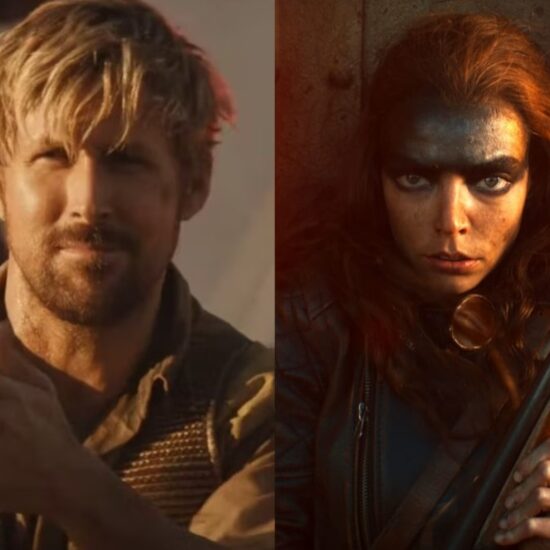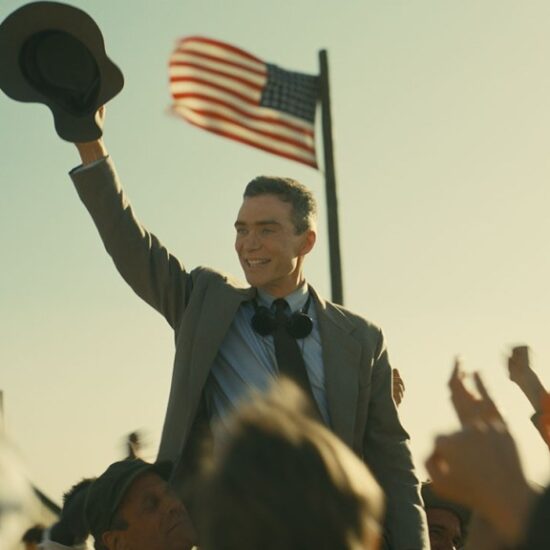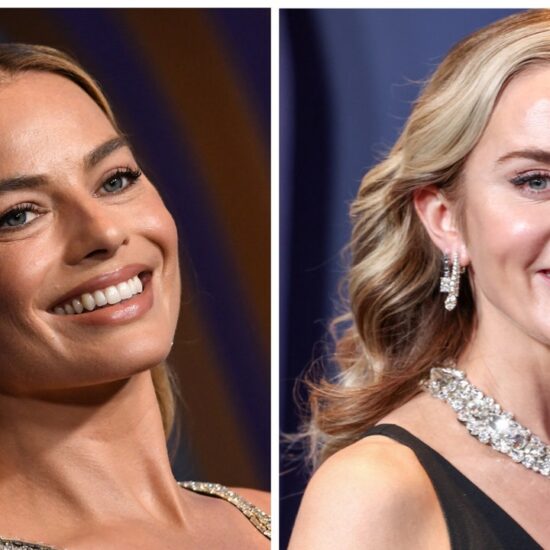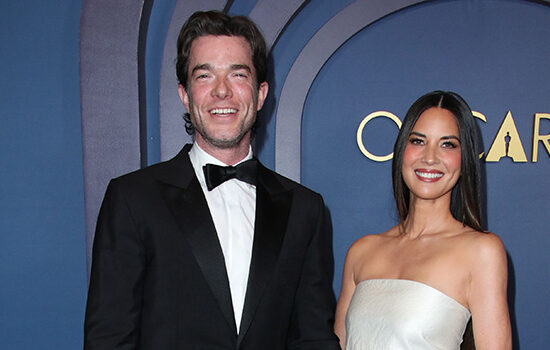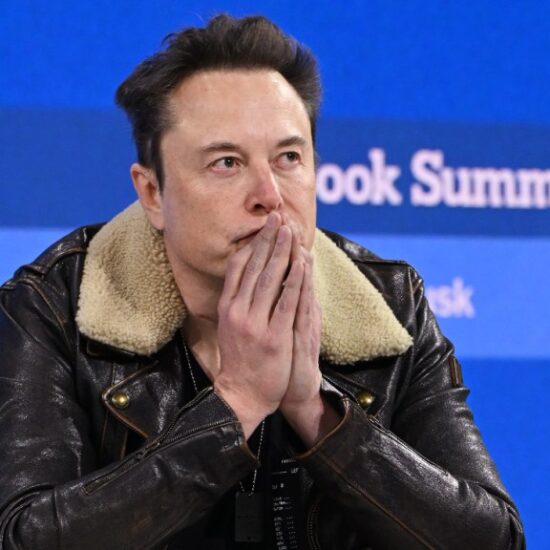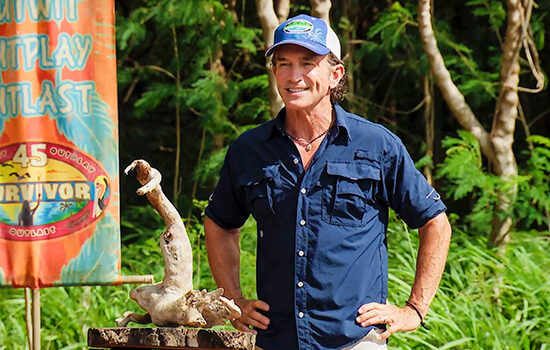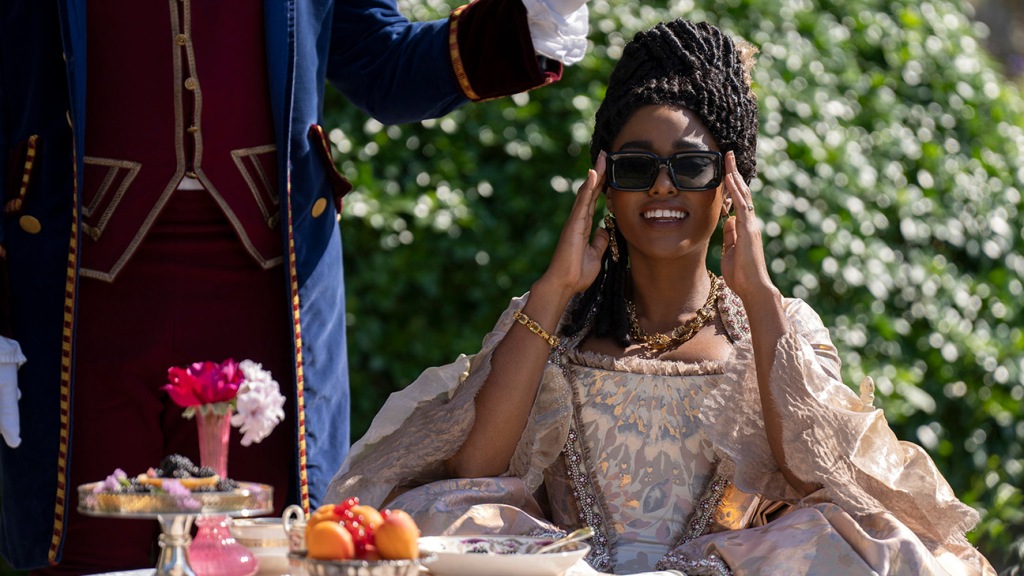
When Bridgerton was first released in 2020, Arséma Thomas wanted so badly to be a part of that world she couldn’t even watch the hit Netflix period romance.
“I don’t know what it was, but sometimes when you see something that you want and you see that it’s already come and gone, it’s difficult to sit and enjoy it without thinking of that,” Thomas, 28, tells The Hollywood Reporter. “I think that was what was going through my mind, that this would be the perfect thing, the greatest thing… to see that it came and went and I didn’t hear of an audition, I was like, ‘Oh, I’m gutted. I don’t think I can ever watch this.’”
When the actress, who at the time was studying at the London Academy of Music and Dramatic Art, heard there would be a second season of the Shonda Rhimes hit series, she asked her agent to see if there was anything that he could do, but filming had already begun. A week later, however, Thomas’ agent got word of Queen Charlotte and brought it to her.
“I was like, ‘This is a sign. Now I have a reason to watch.’”
Thomas didn’t know what role she was going out for when her agent sent in her self-tape. But after three auditions and a Zoom call with director Tom Verica — during which she held back coughs and sniffles while recovering from COVID — she was asked to do a chemistry read.
“The thing is, when you have a chemistry read, it’s between you and maybe two other people,” she says. “So those two weeks were probably the most painful two weeks ever because you’re so close, you can taste it, but you also have to tell yourself: Don’t get your hopes too high because if anything crashes and burns, which it’s likely to, then you’re not going to get hurt too bad.”
Quite the opposite happened when, two weeks later, Thomas found out she landed the role of Lady Agatha Danbury in the Bridgerton prequel. The drama starring India Ria Amarteifio as Queen Charlotte released on Netflix May 4 and sees Adjoa Andoh reprising her role as the elder Lady Danbury and Golda Rosheuvel as the elder queen. The spinoff series became an instant streaming hit, amassing more than 307 million hours viewed to date, according to Netflix’s internal rankings.
Success, for Thomas, is about more than potentially record-breaking viewership, though. It’s about setting a precedent for Black women’s stories on screen — and by extension for Black, queer individuals like herself to be seen and accepted in everyday life.
“To see the positive response and the excitement and the applause from the Black community and really from everybody to this character and this story, I think is, unfortunately, the stamp of approval that the industry needs to show that these stories should be told. And you will still be successful in telling these stories — and that’s successful in big ass quotes,” she says.
“I came into the industry very in denial. Part of me was like: I’m going to be wrong. This isn’t a place for me. Only three Black actresses can really make it, and I’m the fourth. And to see that that’s not the case, to see that there will be more content made, that more stories of ours will be featured so that people will not look at Black people as a monolith, it just gives me hope.”
Thomas as young Agatha Danbury in Queen Charlotte: A Bridgerton Story.
Nick Wall/Netflix
Your character has easily become a fan favorite. What do you think it is about Lady Danbury’s story that resonates so well with audiences?
I think there’s something really powerful about what she stands for and the things that she wants unapologetically. Shonda said it so well: This time period is peak women apologizing for everything they want. And to see a woman against that backdrop who goes against that and demands the things that she knows she deserves, is such an empowering thing, especially for Black people and especially for Black women because we tend to be the demographic that is relegated to easily forgotten. When you think of woman, you think of white woman. When you think of Black, you think of Black man and, where does the Black woman fit? And to see her take up space and to see her win in doing that — it’s not a cautionary tale, but rather something that should be galvanizing other Black women to demand the things that they want. And to see her go for the pleasure that she wants, she feels so relatable. She says what we’re all thinking.
How much time did you spend with Adjoa Andoh shaping the younger version of your character?
You can tell that this is a very different Agatha who is a really big departure from the person that we see in Bridgerton. So, I already knew that I was going to be starting from a different place and Tom Verica, the director, said, “This is your own character, make it your own.” And I was like, “Okay, I don’t know what that means.” So, I asked Adjoa: Hey, do you have just a second to talk to me about all of the moments that she is in Bridgerton? What is she thinking about? I just want to know that because you won’t hear it necessarily. But to just understand why she makes the decisions that she makes. What is her favorite color? What is the nightmare that she had reoccurring as a little girl? All these small things that I think would also just link our two Lady Ds really well.
Adjoa also gave me the confidence to make my own decisions and play with her. Because this script was written after season one and two had been filmed, there were also parts of her own backstory that Adjoa was finding out for the very first time. So, it meant that we could come at it from a very level playing field.
Adjoa is a revolutionary and an activist in almost every sense of the word herself. And to see her bookshelf, we had a Zoom call and behind her was her library. And it was filled with books on the Black Panthers and the art that they made. The autobiography of Assata Shakur. Multiple books on Angela Davis. And so, to see that we already shared a very similar value system, I then knew, “Okay, we have the same intellectual foundation for Agatha,” and then built from there together.
I noticed you have “Backlash Blues-Nina Simone” written in your Instagram bio. What’s the significance?
Oh my God, that song, it speaks to my soul in such a palpable way. I was watching Summer of Soul and that moment in the movie when she goes up on stage and sings it, makes me cry. What she’s talking about, the blues really of the backlash, the monotony and the stagnation of what it feels like sometimes to be deep in the fight, there’s something so eerie and so emotional about that song. I love Nina Simone. Her voice is unlike anything I’ve ever heard before.

Thomas in Queen Charlotte.
Nick Wall/Netflix
In one of your IG posts, you also thanked Golda Rosheuvel “for being you and giving me the confidence to be me.” How did your relationship develop in that way?
We weren’t actually that close while filming just because we never filmed anything together. But we went to Cape Town to promote the show and my mother was there, and it was a beautiful moment of this meeting of so much feminine, powerful energy. We discussed so much about specifically being queer women in spaces, and in not African spaces, but in culturally Black spaces that can sometimes not always accept that and what it means to understand and be fully accepting of our identities. And it was beautiful.
She’s one of the greatest human beings. I see her walk and behave with such kindness, but still rooted in her Golda-ness. She looks everybody in the eye and asks them how they’re doing. And that’s something that a lot of people don’t do. So, to see her be kind and talented and unapologetic and still be winning —so many people say, “Don’t be nice because you’ll lose, and people will take advantage of you. And you don’t have to say all of the things that you think about with politics or with these controversial issues because you’ll lose a fan base and this and that.” And to see her do those things and be loved and revered by it, it one, gives me hope for what society embraces. But it also shows me that I can be me and by being me, that will attract the people who I want by me.
You did a segment together on The View and Rosheuvel discussed how this is the first time in her career that her textured hair has been embraced through a character and that seemed to resonate with you. How unique of an experience has that been, particularly as it pertains to your hairstyling on your promo run?
I feel like in discussing this, people are starting to recognize how important hair is to the Black experience, men and women, and I think that’s what I’ve been trying to showcase is the beauty of it in its natural space. It doesn’t have to be straightened; it doesn’t have to be anything but it’s Afro. Also, to pay homage to ancient African hairstyles that are used by our ancestral people, I think it tends to be forgotten. And then it tends to be co-opted and then rebranded to us as something else. So, I think it’s, one, me trying to get ahead of it and be like, don’t you see this style is Black? But two, I grew up a lot hating my hair. I still am in a very strange place with my hair of wanting to keep it hidden in a way, unless it’s in its most perfect form.
During filming, I wanted Agatha to wear kinkier hair and to showcase more tighter curls and I had to remember that she is in a literally different place than me. She’s been ingratiated into the English society for so long that that’s never even been an option. And I recognize the privilege that I have had growing up on the continent and being exposed to the beauty of Africa. So, it’s also me wanting to show that as well, to people who can’t go. It’s my way, I guess, of sharing in the privilege.

Adjoa Andoh, left, with Thomas at a London Queen Charlotte press event.
StillMoving.net for Netflix
You graduated with a Bachelor of Arts in Biophysics from Carnegie Mellon University in 2016 and then a Master’s of Public Health from Yale University School of Public Health in 2018. How did public health become such an important issue for you?
I thought public health was a way that I would be able to make an impact for the better. There’s so many health indicators that are really revealing of the fact that racism is still alive and well and now affecting us physically. And I thought, let me go through this field and see what I can do for equality, at least in the health industry. And I think it was in my master’s program where I was like, I love the impact that I’m going for, but I’m not liking the way that I’m doing it. It’s a lot of policy and negotiation and bureaucracy and paperwork. And I feel as though that is all distractions really from doing the work and making the change. I was like, this is not making me happy at all. I feel maybe even more pessimistic and nihilistic than before.
And then I thought, let me think about in my own life what has affected me racially. When have I felt racialized the most? And it’s been in the media that I consumed. I only saw girls with, if anything not straight, loose curls. I saw people who were lighter than me, who were thinner than me, whose proximity to whiteness was higher than mine, and because of that, they were considered what we should aspire to. I decided I wanted to undo that, if not for myself then for other people. I realized that I can marry that with my love of acting and feel fulfilled.
When did you first start to act and know that it was a passion of yours?
It was in a small little after school program my parents put me in when I was young. Every time my sister and I would have free time, we would create little worlds with our small little monopoly pieces and act all the time. It was, I think, my happy place with moving so much. It was the one constant thing I could control. So, I immediately fell in love with it as a kid, but I didn’t think that it could be a job. I thought it was just something that I would have to make time out of in my “real” work day. It’s not usually an option that you’re encouraged towards having immigrant parents and with all of the risks that they’ve gone through to get me to where I am, they’re very risk averse and acting is a very risk-loving industry.
Your parents are also diplomats. Did you relate at all to the theme of societal expectations in Bridgerton and the pressure that comes with that, having grown up in political circles where that’s also common?
I’m starting to realize subconsciously how similar the two are. I think that’s the reason why Agatha seems so similar to my mother to me. They’re both very diplomatic in very clear ways. They’re both very strategic. Every situation they’re in means so much more and affects more than the people that are just discussing it. And I think having those stakes in day-to-day conversations is something that I realized I’d been around growing up. Even the balls remind me of the dinner parties where it’s this performative joy and excitement: Look at us having fun and dancing. But everything still becomes a discussion about politics, even in those settings. That intersection is something very, very reminiscent of my upbringing.
Why did you choose to study acting in London?
At the time I was going through this weird relationship I have with America. I was like, I think I need to be away from this country a bit. It was like what James Baldwin discusses when he leaves to go to Paris and Berlin for some time, the idea that you have to leave the country that you love because it doesn’t want me in the way that I love it. And acting and drama school is such a personal space and an emotional training program, I thought it would be best if I was in a place that acts almost like a blank canvas rather than something that might affect me in personal ways and then also bleed into my schoolwork.
You’ve traveled extensively throughout Africa as well as Europe and the United States. Is there a city or country where you feel most safe and most comfortable to be yourself?
Sadly, I don’t think there is. It’s such a strange feeling because in a lot of places, me being a woman is the thing that makes it unsafe. And in a lot of places, me being Black is the thing that makes it unsafe. In a lot of places, me being queer is the thing that makes it unsafe. So, it’s such a difficult thing.
I would say that the city that I love the most, just based on experience would have to be Cotonou in Benin. It’s this beautiful, small country in West Africa. It’s francophone and it’s amazing because no matter where you drive in the city, there’s sand everywhere. And there’s that proximity to water that I love. There’s also this laissez-faire attitude because it’s so hot and humid and the music is amazing. Angelique Kidjo, who is one of my favorite musicians, is from there. The food is banging because of the fishing there. It feels at peace. It feels like it’s a city that is actually calm in itself.
Activism seems to be such a big part of your artistry between your health app enki, which supplies female condoms to combat HIV/AIDS, and your startup Mosaic, geared toward helping refugees. You’re also speaking out about the writer’s strike. Can you talk about the importance of using your platform and your ultimate goals?
My goal really is to show that “activist’ is not really a thing that is its own separate entity. I would never consider myself an activist. I don’t think I do enough to be an activist. I think what I am, honestly, is just empathetic. I think this is what it looks like, in my opinion, to be an active member of society, to be just a human and recognize that other humans are in pain. And it’s that whole saying of, if one of us is in shackles, all of us are in shackles. So, it doesn’t truly make sense to me to not care about issues because I don’t see how it doesn’t affect all of us.
Even when white people say that they are not in a space to talk about race, you are. You’re actually in the best space because you are the perpetrators of racism. So, if anyone should be talking about it, it should really be you. And it should not only be the people who are affected by things, it should be everybody. Because the moment that people realize that bad things can happen to good people and no one will care, then we’ve really lost it. Then at that point, what is the point? So, I think that has been the thing that has been running through my mind the most is if I can use this platform to show that we should all really be caring, then I think that really is the thing that undoes a lot of other things. All of these isms that we fight against are about the dehumanization of people. The moment that you give people back their humanness, their humanity, then it becomes difficult to take advantage to oppress and marginalize.
Interview edited for length and clarity.









